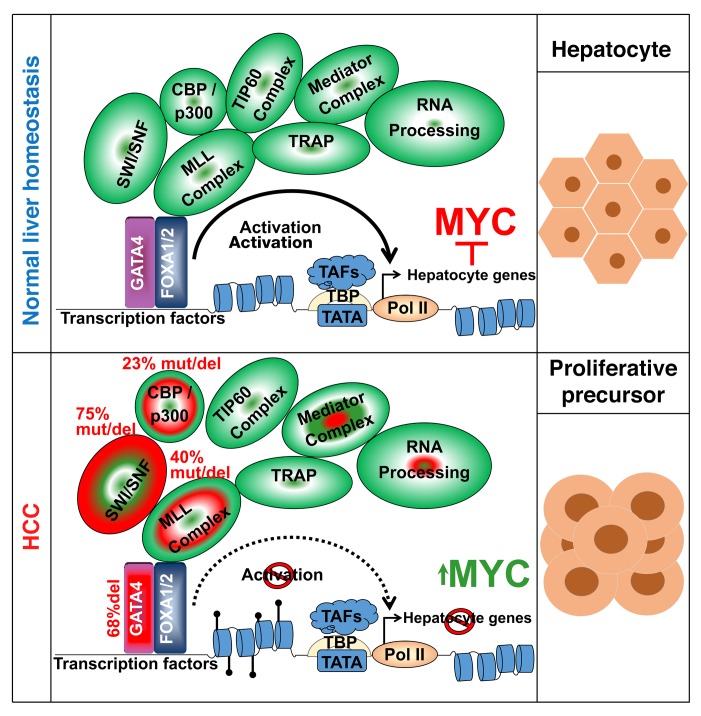Figure 9. The model: several genetic alterations in HCC impair master transcription factor–mediated (GATA4) chromatin remodeling/transactivation to suppress precursor-to-epithelial transition.
Normal liver cells have intact master transcription factors (e.g., GATA4/FOXA1) that dictate cell fate by recruiting coactivators (e.g., ARID1A) to remodel and activate downstream transcription factors and hundreds of hepatocyte epithelial-differentiation genes, antagonizing MYC in the process for terminal epithelial differentiation. In HCC, haploinsufficiency or loss-of-function mutation in 1 allele of GATA4 and/or inactivation of GATA4 coactivators (e.g., ARID1A) impairs this chromatin remodeling and transcription activation to produce a selective suppression of terminal epithelial-differentiation genes, a selective repression that is facilitated by the inherently closed chromatin state of these versus commitment and MYC proliferation genes.

